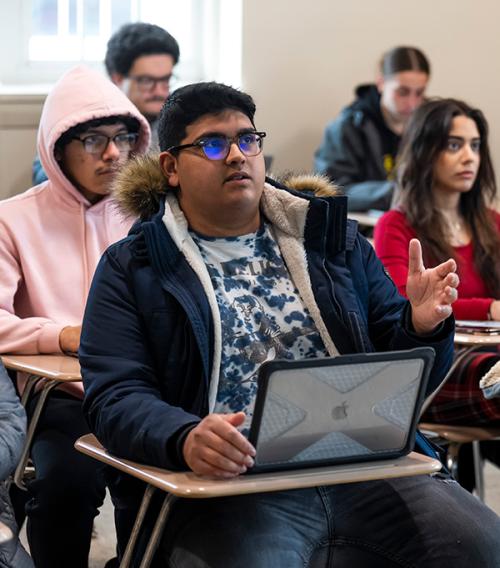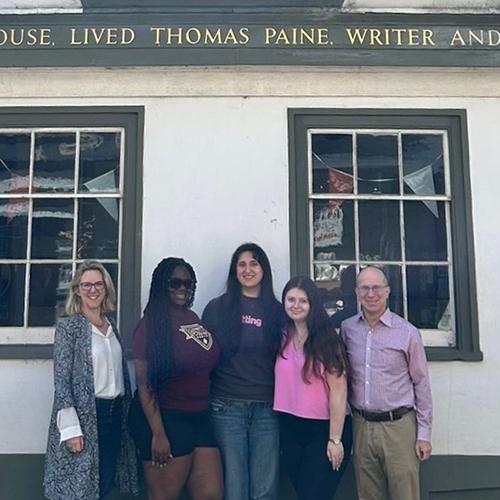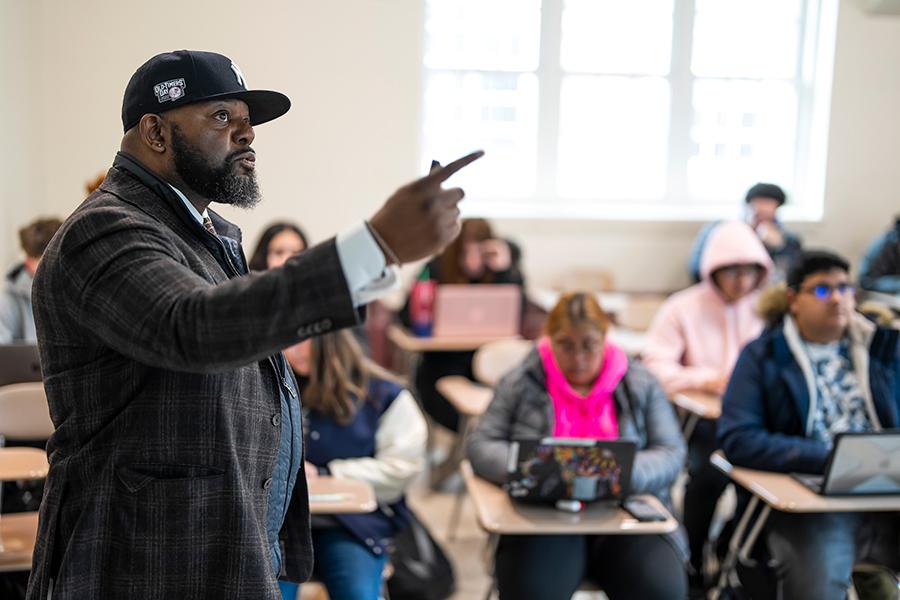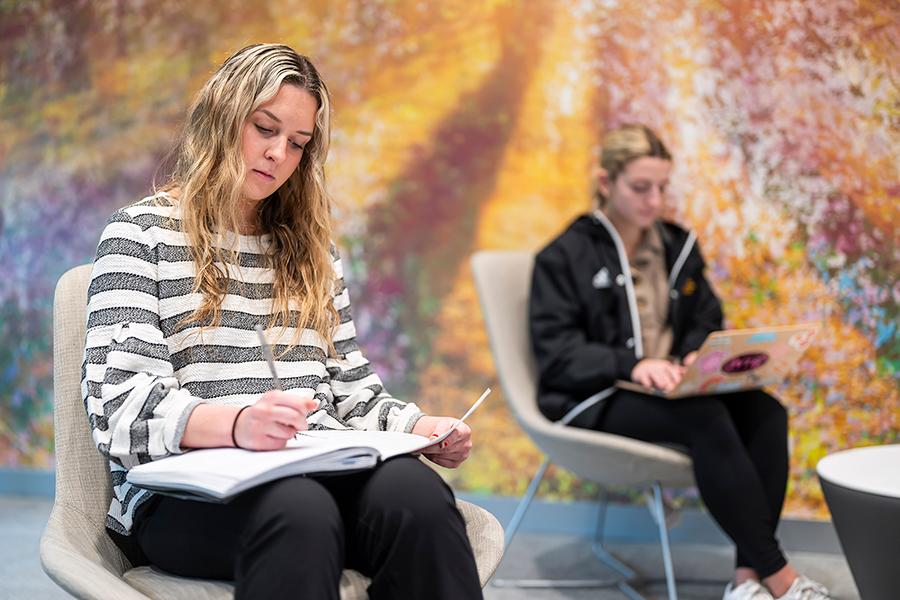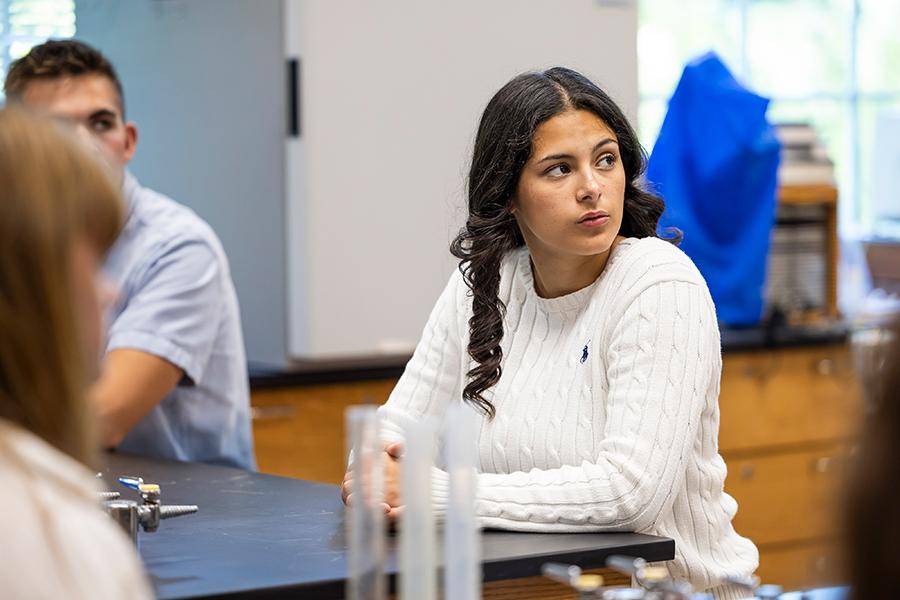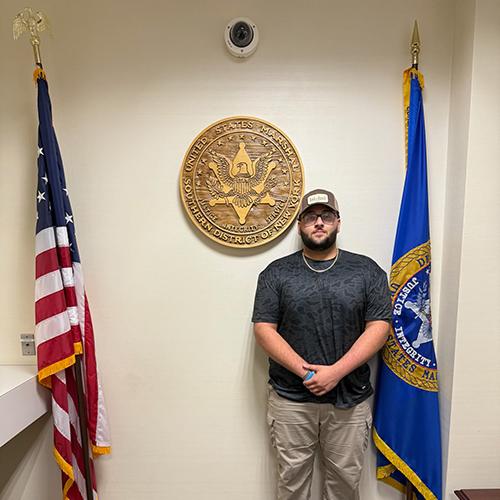Criminal Justice & Sociology Department
Human beliefs and values, behavioral interactions, and social institutions are the foundation of society. If you have ever wondered why humans behave the way that they do, you'll learn about the complex influences that shape the answers with our Criminal Justice & Sociology Department.
You will gain insight into how cultural perspectives; socioeconomic, racial and gendered inequalities; technological advances and more, shape and organize our world every day.
Our expert faculty will lead you to find a deeper understanding as to why humans behave the way that they do. You will gain a unique insight into America’s rich diversity of cultures and the impact it has on everything including media and popular culture, issues of justice and legal policies, deviance and crime.
Iona University Partners with the United States Secret Service
Iona University is excited to collaborate with the U.S. Secret Service to support its recruitment efforts across the Hudson Valley. This partnership offers Iona seniors a unique opportunity to fast-track their career aspirations and participate in an expedited hiring process. Throughout the academic year, students can attend exclusive recruitment sessions right on campus, designed to streamline the application and hiring process. To explore current openings and take advantage of this exciting pathway, students can visit USAJobs.gov or reach out to Iona’s Career Center for the latest opportunities.
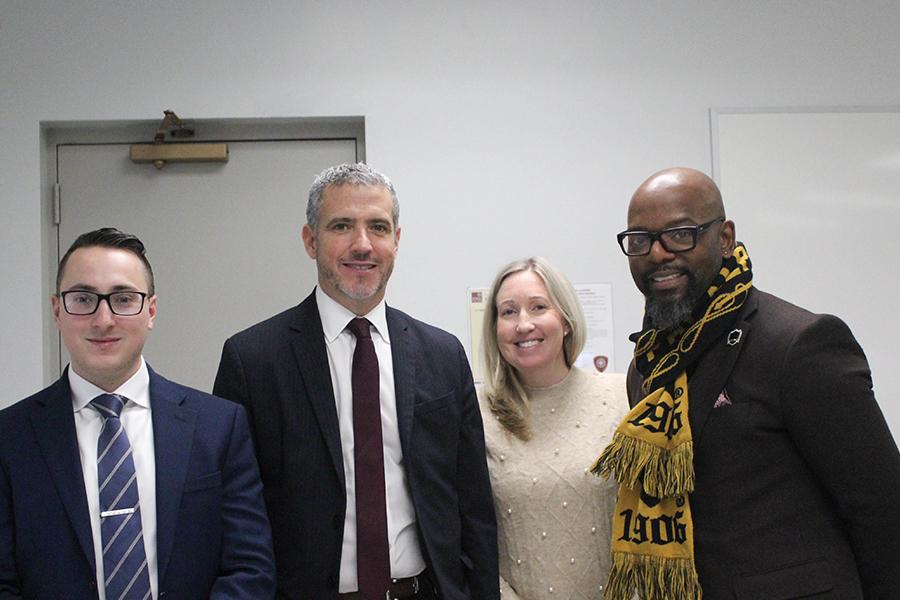
Criminal Justice & Sociology Programs
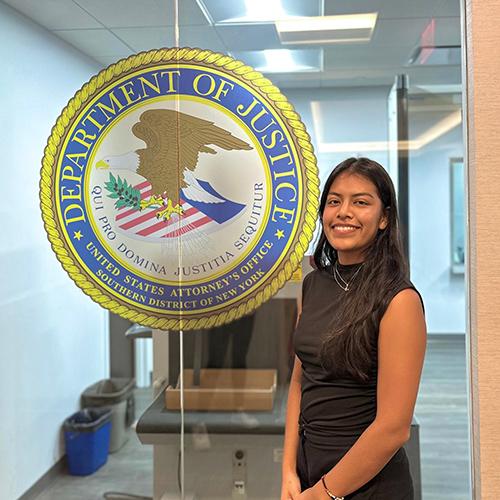
At Iona, I have found a talented and intelligent group of professors, students and friends. Everyone is working hard and striving for success. This environment definitely contributes to my determination and passion toward achieving my goals!
Danielle Escamilla ’23, Criminal Justice and Political Science double major
Read More about Danielle
Watch: Tyron Pope, Ed.D., on Pix11
Dr. Tyron Pope joined PIX11 Morning News to discuss new NYPD Commissioner Edward Caban.
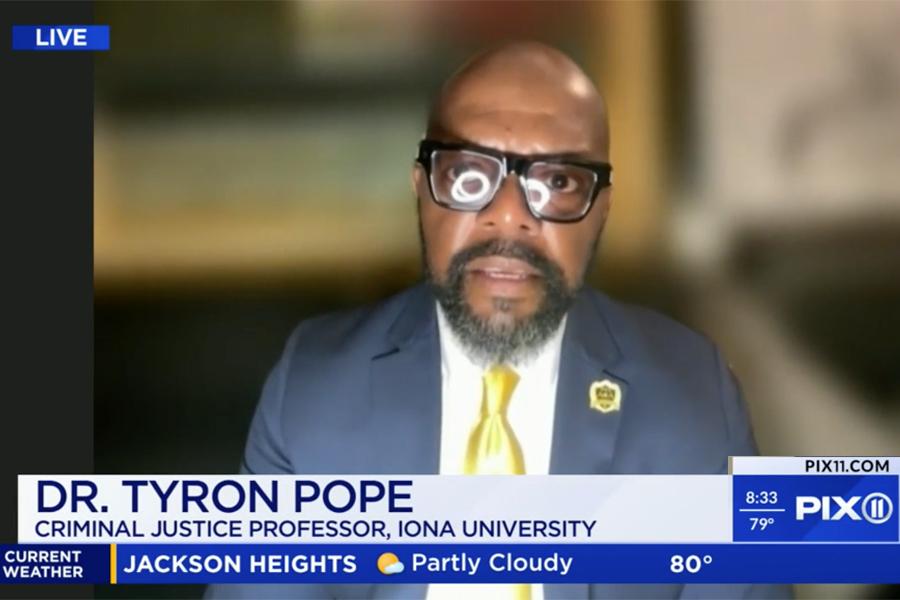
Contact Us
Criminal Justice & Sociology Department
Derese Kassa, Ph.D.
Chair, Criminal Justice & Sociology Department
Phone: (914) 633-2596
Email: dkassa@iona.edu

Missions & Student Outcomes
Criminal Justice Mission
The Department of Criminal Justice is dedicated to nurturing ethical and skilled decision makers, developing problem solvers who embrace diversity and are committed to providing quality service to all segments of the community, and producing independent thinkers for whom the goals of justice and fairness are paramount. These hallmarks of a criminal justice education at Iona will be achieved through a program which considers critical issues in the field from an interdisciplinary perspective in a true liberal arts tradition. In furtherance of this mandate, the Department of Criminal Justice will ensure that our graduates:
- Section A: are not only familiar with all components of the criminal justice system, from both a theoretical and practical perspective, but have been taught to question existing practices and procedures in search of more effective and viable alternatives;
- Section B: have a thorough appreciation of the nature and causes of crime, recognizing in particular how strong families, stable communities, effective schools, and reductions in violence and poverty are integral to any crime prevention initiatives and programs;
- Section C: have an appreciation for the myriad social, political, legal and ethical concerns embedded in complex criminal justice issues;
- Section D: not only have a complete understanding of criminal law (both substantive and procedural) but also appreciate how fair and equal treatment under the law is essential to the American system of criminal justice;
- Section E: consider themselves professionals whose integrity is beyond reproach and who are committed to treating both victims and offenders with respect and dignity; and
- Section F: are equipped with excellent communication skills, both oral and written, as well as the technological expertise necessary to access, analyze and utilize information.
Success in our mission will ensure that Iona criminal justice graduates are well positioned for many diverse careers in the field.
Criminal Justice Student Outcomes
- Differentiate the criminal justice system components from both a theoretical and practical perspective, and critically evaluate existing practices and procedures in search of more viable alternatives.
- Identify the nature and causes of crime, recognizing how strong families, stable communities, effective schools, and reductions in violence and poverty prevent crime.
- Appreciate the myriad social, political, legal, and ethical concerns embedded in complex criminal justice issues.
- Demonstrate a complete understanding of substantive and procedural criminal law, and enumerate the importance of fair and equal legal treatment to American criminal justice.
- Present themselves as professionals whose integrity is beyond reproach and who are committed to treating both victims and offenders with respect and dignity.
(Revised, January 2013)
Sociology Mission
The study of sociology enables one to better understand human behavior in that most human interaction is heavily influenced by the cultures and the social groups to which one belongs. The study of sociology gives students an informed perspective on America's rich diversity of cultures and a lens for understanding contemporary social and technological change.
The aim of the major in sociology is to provide students with analytical, critical thinking and problem solving skills, and the tools for ethical decision making, as well as a broad foundation for a variety of career options, including research, marketing, sales, advertising public relations, law, civil and government service, labor and industrial relations, medicine, social service, and criminal justice.
Sociology Outcomes
Student Learning Outcomes (SLOs) for students completing the BA degree in sociology are the following:
- To understand and to appreciate sociology as a highly-organized discipline shaped by several theoretical perspectives whose research endeavors are guided by scientific method.
- To apply theory to a variety of substantive social issues.
